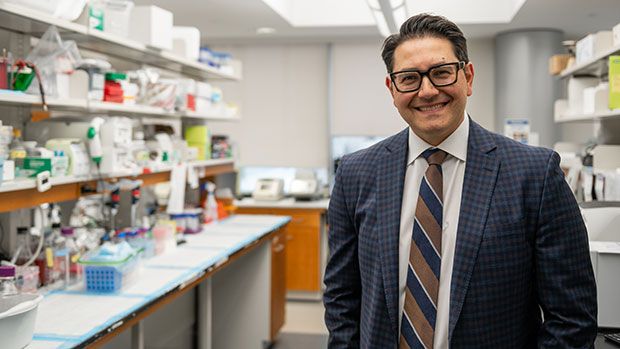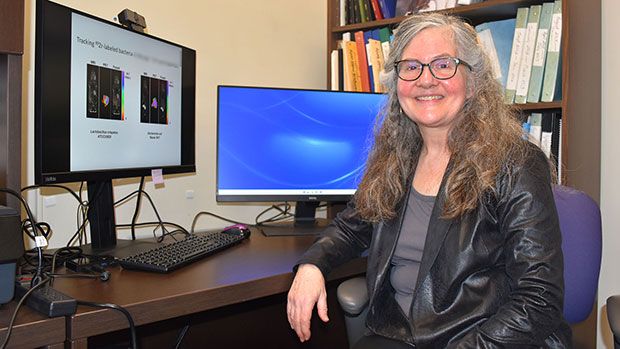Genetic mutation associated with improved outcomes for heavy smokers with head and neck cancer
LONDON, ON – A recent study has found that patients considered to be heavy smokers who carry a particular genetic mutation, experience significantly greater outcomes when compared to patients carrying the wild-type, or non-mutated gene.
Head and neck squamous cell carcinoma (HNSCC) is the fifth most common cancer worldwide. Both disease and treatment can have a profound negative impact on the patient’s quality of life due to disfigurement, difficulty speaking and swallowing.
Approximately 25 per cent of head and neck cancers are caused by oral infection with the human papillomavirus (HPV). These tumours are typically found in younger, non-smoking patients, and are highly responsive to treatment. Most HPV-negative tumours are caused by smoking, but one-third of these patients have no smoking history.
In the first genomic analysis of head and neck cancer by smoking status, researchers at Lawson, in collaboration with researchers at the Ontario Institute for Cancer Research and UCLA Cancer Centre, carried out a comprehensive genetic analysis of HPV-negative tumours to better understand the link between smoking and cancer recovery.
Two genes, NSD1 and COL1A11, were more frequently mutated in heavy smokers. “We were surprised to find that patients carrying the NSD1 mutation experienced significantly better outcomes compared to those carrying the wild-type gene. Smoking is definitely bad and causes head and neck, and numerous other cancers, however a subset of these smoking related cancers that carry NSD1 tend to be significantly less aggressive,” says Dr. Anthony Nichols, Lawson Scientist, physician and Chair of the Head and Neck Disease Site Team at London Health Science Centre (LHSC).
Targeted gene sequencing of NSD1 was later conducted in 77 oral cavity cancer tumours from patients treated at LHSC. Improved overall survival was observed for patients with NSD1 mutations, supporting what researchers found through data analysis.
Dr. Nichols explains that for patients who have a relatively good prognosis, there is great interest in using a less intense cancer treatment protocol. “The NSD1 mutation could be used as a clinical biomarker for less intense treatment protocols, ultimately benefiting the patient by improving their quality of life with fewer side effects.”
The study, “Mutational analysis of head and neck squamous cell carcinoma stratified by smoking status” was recently published in JCI Insight.
This is one example of how Lawson is contributing to making Ontario Healthier, Wealthier and Smarter.
-30-
Lawson Health Research Institute is one of Canada’s top hospital-based research institutes, tackling the most pressing challenges in health care. As the research institute of London Health Sciences Centre and St. Joseph’s Health Care London, our innovation happens where care is delivered. Lawson research teams are at the leading-edge of science with the goal of improving health and the delivery of care for patients. Working in partnership with Western University, our researchers are encouraged to pursue their curiosity, collaborate often and share their discoveries widely. Research conducted through Lawson makes a difference in the lives of patients, families and communities around the world. To learn more, visit www.lawsonresearch.ca.
Communications Consultant & External Relations
Lawson Health Research Institute
T: 519-685-8500 ext. 75664
C. 519-619-3872
@email




